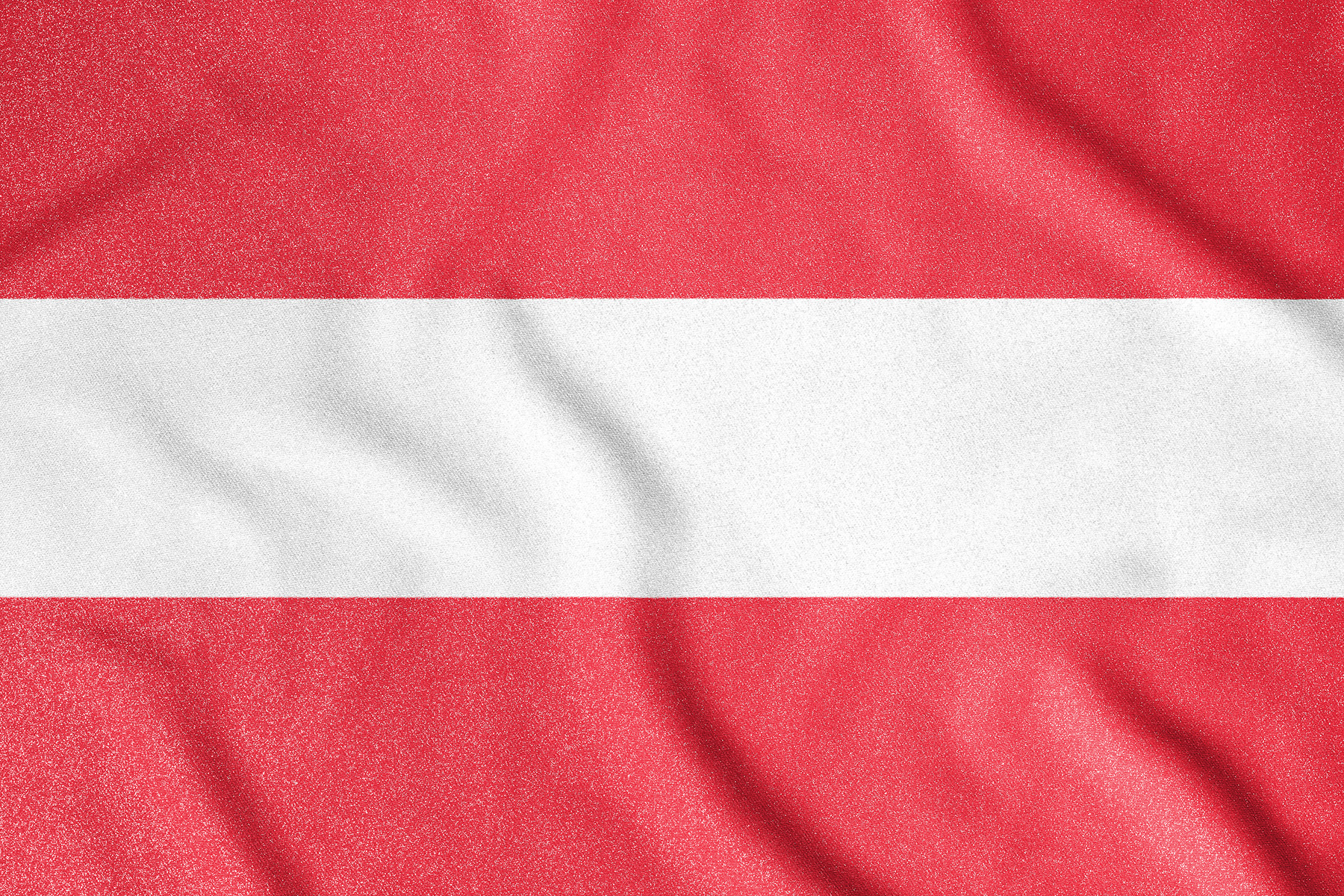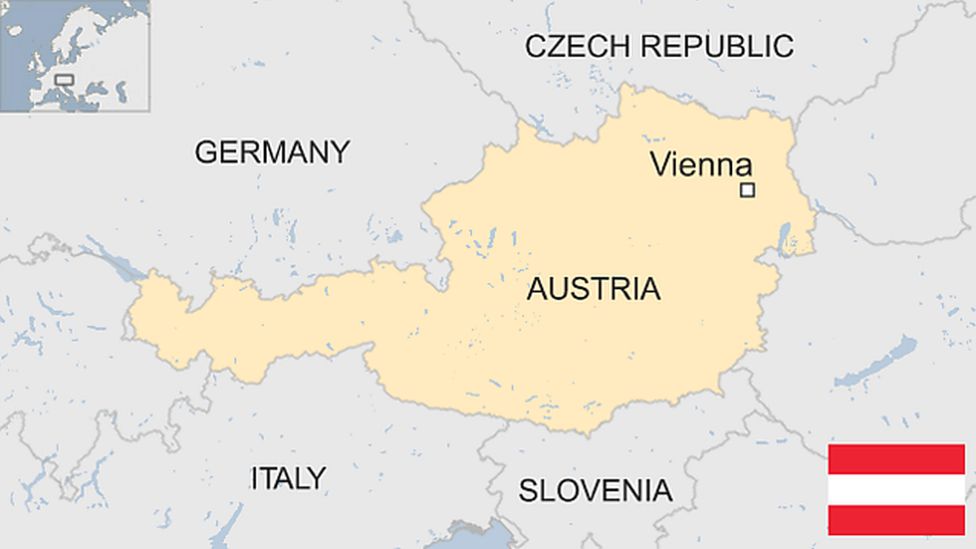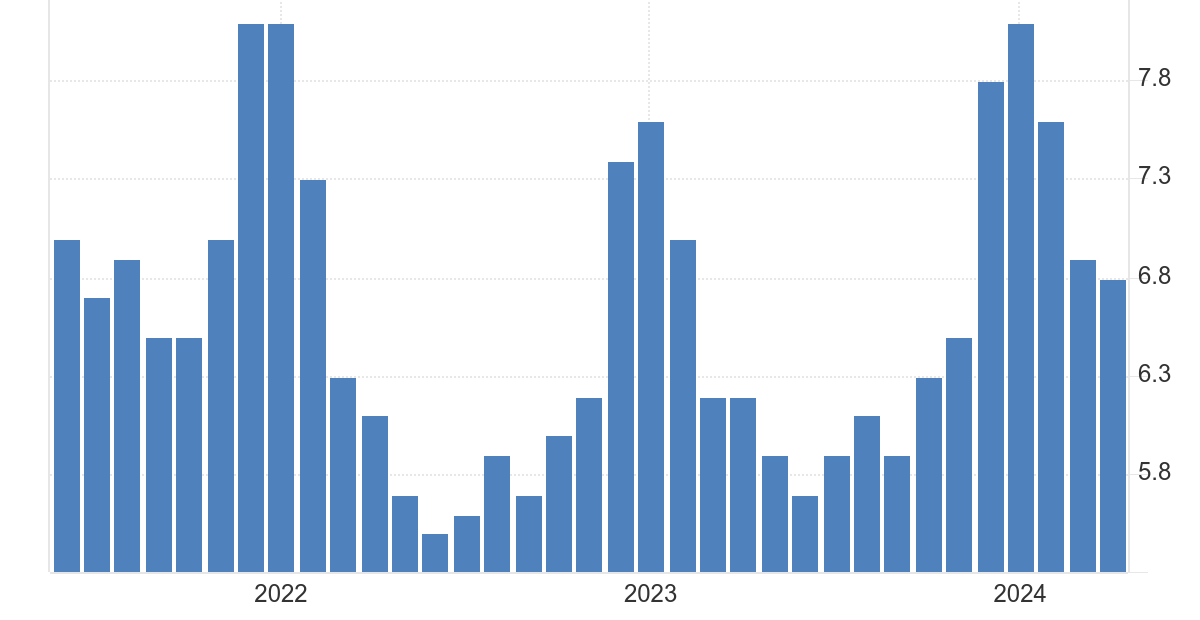- e-mail us
- We are Open
Work in Austria
- Home
- Work in Austria

Austria, as a prominent member of the European Union, offers a favorable working environment for employees. With its strong and stable economy, low unemployment rate, and high living standards, this country remains a popular destination for professionals and skilled labor seeking employment opportunities.
Austria provides an attractive work environment by offering numerous benefits to its employees. These benefits include flexible working hours, generous vacation time, comprehensive health insurance, and competitive salaries. The unemployment rate in Austria is relatively low, around 5%.
The average monthly income in Austria in 2023 was approximately 2,800 euros. This amount varies depending on the industry, level of education, and work experience. Austria is also known for supporting employees with some of the highest welfare standards in Europe.
To work in Austria, applicants can apply for various work visas. These include the job offer visa from an employer (Job Offer) and the Austrian job seeker visa (Job Seeker). Each of these visas has its own specific conditions and requirements that must be met.
Overall, Austria is one of the most desirable destinations to work in Europe, offering numerous benefits to employees and a positive job outlook. For more information, you can contact the consultants at Talav Company and take advantage of their free telephone consultation services.

Topics covered in this article:
– Working Requirements in Austria for kurds
– Austrian job market overview
– Austria’s unemployment rate
– Various Austrian work visas
– Required documents for Austrian work visa
– Employment in Austria with an Austrian job seeker visa
– Employment in Austria with a job offer
– Austria’s Red-White-Red Card
– Job opportunities in Austria for skilled workers in low-paying positions
– Job opportunities in Austria for key professionals (artists, athletes, etc.)
– Jobs that need job seeker visa
– List of in-demand low-income jobs
– Typical salaries in Austria
– Finding job in Austria
– Agencies that Assist with Employment in Austria
– Requirements for obtaining dependent visa for Austria
– Achieving permanent residency & Austrian citizenship via employment
– Commonly Asked Questions
– Last words
Working Requirements in Austria for kurds
Austria is one of the top countries in the European Union in terms of economic conditions. High social and economic security, a high GDP, and a favorable unemployment rate have made Austria one of the best places to live and work in the world. Fortunately, Austria has opened its doors to those interested in working in the country, provided they meet the necessary conditions.
These conditions generally include factors such as age, education, and work experience.
Since the Austrian work visa operates on a points-based system, each of these factors contributes to your overall score. If you achieve the required points, you can apply for an Austrian work visa. This makes working in Austria a viable option for Iranians.
The conditions and regulations for working in Austria are as follows:
- Income: The average income in Austria is approximately 44,780 euros per year. Typically, the minimum salary ranges from 12,520 euros to the highest salary of 204,700 euros.
- Standard working hours: In Austria, the standard working hours are 8 hours a day, five days a week.
- Holidays: Each employee is entitled to 25 days of paid leave per year.
- Employment & unemployment: With a low unemployment rate of 4.8%, Austria has one of the lowest unemployment rates in the EU and worldwide.
- Income tax rates: Income tax rates for employees range from 0% to 55%.
- Language: German is generally required to work in Austria, although some companies may accept English as a working language.
Austrian job market overview
The labor market in Austria varies significantly based on individual circumstances and industry sectors. Here are some key insights into the current Austrian labor market:
Employment: As of 2018, approximately 3.74 million people were employed in Austria. The workforce distribution was 73.9% in the service sector, 25.4% in industry, and less than 1% in agriculture and forestry. Austria boasts a high level of employment with a low unemployment rate of 4.8%, ranking among the lowest in the European Union and globally.
Employment Rate: The employment rate for individuals aged 15 to 64 averaged 72.4% in 2021. Part-time employment reached 29.4%, with 49.6% of women and 11.6% of men engaged in high-paying positions. Among part-time workers, the youth (aged 15-24) unemployment rate was 11.0%, while older adults (aged 50 and over) faced a 9.1% unemployment rate.
Foreign Workers: In 2023, approximately 922,500 foreign workers were employed in Austria, representing nearly a quarter of the total workforce. Foreign workers are more susceptible to economic fluctuations compared to domestic workers concerning job opportunities.
Motivated Workforce: Austrian workers demonstrate high motivation, resulting in the production of high-quality goods and extensive customer satisfaction. While skilled labor shortages are becoming more prevalent in Austria, the situation remains more favorable than in other industrialized nations.
Austria’s unemployment rate
One crucial factor to consider when applying for jobs abroad is the unemployment rate of the destination country. A low unemployment rate signifies a demand for labor and potential job opportunities. In Austria, the unemployment rate as of 2023 stands at 6.4%.
Austria has also identified shortages in certain job sectors, indicating specific areas where there is a high demand for skilled workers.
Austrai Unemployment Rate-Percentage%

Various Austrian work visas
There are two primary ways to obtain a work visa for Austria:
Receiving a Job Offer from an Employer in Austria: Individuals can secure an Austrian work visa by receiving a job offer from an employer in Austria. This route applies to various groups with different occupations and conditions, allowing them to obtain the necessary visa.
Obtaining an Austrian Job Seeker Visa: Another option to work in Austria is through a job seeker visa, which doesn’t require a prior job offer. This visa is valid for both Germany and Austria, allowing holders up to 6 months to enter the countries and search for employment. The advantage of this visa is that it enables job seekers to explore opportunities without requiring an employer to sponsor them, reducing the risk of losing job opportunities due to visa processing delays.
To qualify for an Austrian job seeker visa, applicants need to score a minimum of 70 points out of 100 based on criteria such as age, language proficiency, work experience, and education level. Here’s how points are typically assigned:
- Education: Bachelor’s degree earns 20 points, doctorate earns 40 points, while post-graduate diplomas and diplomas do not earn points unless recognized by the Austrian Commercial Office.
- Work Experience: Each year of work experience outside Austria is worth 2 points, and each year of experience in Austria is worth 20 points.
- Language Proficiency: Proficiency in German or English earns points (e.g., A2 level earns 10 points, equivalent to IELTS 4-5; A1 level earns 5 points).
- Age: Points are allocated based on age, with individuals up to 35 years receiving 20 points, decreasing as age increases up to a maximum age limit for eligibility.
Talav Company specializes in assisting individuals with obtaining Austrian work visas and can provide guidance throughout the process.
Required documents for Austrian work visa
To apply for an Austrian work visa, the following documents are typically required:
– Valid passport
– Birth certificate
– Recent passport-sized photo (35×45 mm, taken within the last 6 months)
– Proof of residence in Austria (e.g., lease agreement for a house or dormitory)
– Proof of health insurance coverage
– Proof of sufficient financial means
– Academic degrees and certificates
– Employment certificates
– Language proficiency documents
– Completed visa application form
– Bank account statement
– Payslips or proof of income
Employment in Austria with an Austrian job seeker visa
The Austrian government offers a valuable opportunity to work in Austria through the Austrian job seeker visa. This visa allows individuals to enter Austria for a period of 6 months to actively search for employment. If during this time, an individual secures a job relevant to their field of study and signs an employment contract with an Austrian employer, they can then obtain an Austrian work visa and eventually Austrian residence.
To qualify for an Austrian job seeker visa, applicants must meet a scoring system where highly skilled individuals are eligible if they achieve a minimum of 70 points out of a total of 100 points. Successful applicants under this visa category are eligible for the Red-White-Red residence permit.
Below, we will explore the criteria used to evaluate skilled labor for selection in Austria:
Points | Eligibility criteria for skilled labor |
Maximum score 40 | Special conditions and skills |
20 | Graduated from higher education institutions / 4-year course |
30 | Your degree should be in the fields of humanities, mathematics, natural sciences or technology |
40 | Postdoctoral or Ph.D |
| If you have worked in a management position in a company that is listed on the stock exchange or a company that has received a positive report on its activities from the Austrian Commerce Department, and your salary last year was as follows : 50,000-60,000 euros 60,000-70,000 euros |
20 | Research and innovative activities |
20 | awards |
Maximum score 20 | Work experience |
2 | per year |
10 | 6 months of work experience in Austria |
Maximum score 10 | Language skills |
5 | German or English at A1 level |
10 | German or English at A2 level |
Maximum score 20 | Age |
20 | Up to 35 years |
15 | Up to 40 years |
10 | Up to 45 years |
Maximum score 10 | Study in Austria |
5 | Diploma from Austria |
10 | Bachelor’s or Master’s degree from Austria |
1 00 | The maximum number of points allowed |
70 | Minimum score required |
Talav Company offers comprehensive information and provides free phone consultations to assess your potential success in obtaining Austrian visas based on your individual circumstances.
Employment in Austria with a job offer
One method of obtaining an Austrian work visa involves receiving a job offer from Austrian employers. To pursue this route, an individual must possess qualifications and skills relevant to the job offered in Austria. These qualifications should align with the field of study or professional expertise required by the employer.
Here’s how the process typically unfolds:
Qualifications Matching: The applicant’s qualifications and skills must correspond to the job position offered by the Austrian employer.
Job Advertisement: The employer is required to advertise the job vacancy for a period of 3 months within Austria, followed by an additional 3 months throughout the European Union. This advertisement period aims to demonstrate that no suitable workforce is available locally or within the EU for the specified position.
Application for Work Visa: If no suitable candidate is found during the advertising period, individuals from outside the European Union can apply for the job offer, work in Austria, and subsequently obtain an Austrian work visa. It’s crucial that the legal framework proposed by the employer receives approval from the Austrian Ministry of Labor.
This process ensures that employment opportunities are first offered and considered within the local and EU labor markets before extending the opportunity to non-EU applicants seeking work in Austria.
Austria’s Red-White-Red Card
To work in Austria, obtaining a Red-White-Red Card is necessary. This card can be applied for through either the Job Offer or Job Seeker visa routes. Applicants must achieve a minimum score of 70 out of 100 points to qualify for this visa. Once granted, the visa allows individuals to search for employment in Austria, and upon securing a job, they can apply for a Red-White-Red Card.
The Red-White-Red Card is initially valid for 2 years and can be renewed thereafter, providing continued authorization to work and reside in Austria.
Job opportunities in Austria for skilled workers in low-paying positions
The Austrian government has established conditions and a scoring system to facilitate employment for skilled workers in low-wage positions in Austria. This opportunity applies to individuals who have received a job offer from an Austrian employer willing to hire at the minimum legal salary. Applicants must achieve a score of 55 points out of 90 in the designated scoring system.
Successful applicants will receive a work visa valid for 2 years, allowing them to work in Austria. To qualify for a Red-White-Red residence permit for the same period, individuals must provide the necessary documentation to demonstrate their skills and abilities.
According to Austrian law, employers who provide bonuses or additional payments to their employees must also extend these benefits to individuals hired under this scheme.
The scoring system for this category is as follows:
Points | Eligibility criteria for skilled workers |
Maximum 30 Mt | Requirements |
20 | Technical and vocational education in the field of low income jobs |
25 | Eligible for university admission |
30 | Completion of a 3-year study program in higher education institutions |
Maximum score 20 | Work experience in a low income job |
2 | per year |
4 | Work in Austria per year |
Maximum score 15 | German language skills |
5 | German at A1 level |
10 | German at A2 level |
15 | German at B2 level |
Maximum score 10 | English language skills |
5 | English at A2 level |
10 | English at B1 level |
Maximum score 15 | Age |
15 | Up to 30 years |
10 | Up to 40 years |
90 | The maximum number of points allowed |
55 | Minimum score required |
this low income jobs hase been introduced in 2024
Job opportunities in Austria for key professionals (artists, athletes, etc.)
Individuals with specialized professions such as artists, athletes, and designers can work in Austria if they secure a job offer from an Austrian employer. As of 2022, the following conditions apply for employment in Austria in these fields:
- The minimum gross monthly salary offered by the employer is €3,132 for individuals over 30 years old.
- The minimum gross monthly salary offered by the employer is €2,610 for individuals under 30 years old.
- No suitable candidate has been registered for the desired position at the Austrian Labor Office.
- Applicants must score at least 55 points out of 90 in the relevant scoring system.
If an individual meets all these conditions and achieves the required 55 points, they will be eligible for a 2-year Austrian residence permit and a Red-White-Red Card. The breakdown of these points is as follows:
Points | Eligibility criteria for key personnel |
The maximum number of people is 30 | Requirements |
20 | Technical and vocational education / training and special skills in the field of key jobs |
25 | Eligible for university admission |
30 | Completion of a 3-year study program in higher education institutions |
Maximum score 20 | Work experience in the key job field |
2 | per year |
4 | Work in Austria per year |
Maximum score 15 | German language skills |
5 | German at A1 level |
10 | German at A2 level |
15 | German at B2 level |
Maximum score 10 | English language skills |
5 | English at A2 level |
10 | English at B1 level |
Maximum score 15 | Age |
15 | Up to 30 years |
10 | Up to 40 years |
9 0 | The maximum number of points allowed |
20 | Special bonus for professional athletes or professional sports coaches |
55 | Minimum score required |
Jobs that need job seeker visa
Each year, Austria identifies high-demand jobs for which individuals can apply for immigration if they score at least 70 points on the job seeker visa assessment. However, there are specific fields in Austria experiencing labor shortages, making graduates in these areas particularly sought after. For these fields, meeting a minimum of 65 points out of 100 on the job seeker visa assessment is sufficient to qualify for work in Austria and receive a job seeker visa. The fields with enhanced conditions include:
– Electrical Engineering
– Mechanical Engineering
– Software Engineering
– Telecommunication Engineering
– Specialized Engineering Professions
– Business Management
– Economics
– Medical Professionals
List of in-demand low-income jobs
Each year, the Austrian government publishes a list of jobs that are in demand based on the needs of the Austrian labor market. The current list of low-income jobs required for skilled workers to work in Austria includes:
Low-paying and in-demand jobs in Austria | ||
machinist | Skilled technician in the field of mechanics | Skilled technician in the field of electricity |
Agricultural equipment engineers | Metal lathe | Special electrical engineers |
Skilled computer technician | work ceiling | Concrete manufacturers |
carpenter | Electrical fitter/electrical connections | Engine mechanics |
Plumber | Varnishers | Disc makers |
Flooring installer | Low voltage communication technician | Woodworkers |
Business management technician | blacksmith | Eye optics |
Restaurant chef | the mechanic | Telecommunications technician |
Welder (torch cutting operators) | Building Painter | Special technicians |
Plastic processor | civil technician | Construction workers |
Typical salaries in Austria
Salaries in Austria vary depending on the type of employment. Formal jobs have a minimum salary set at €2,700 per month, while informal jobs, such as domestic work, have varying salaries based on the nature of the work, typically around €1,200 per month.
On average, the annual salary in Austria is €44,780. Below are examples of salaries for various job types:
Annual salary in Austria | ||
45.899 € | computer programmer | Software developer |
72.453 € | Dentist | DENTIST |
70.890 € | Pharmacist | PHARMACIST |
47.222 € | financial manager | FINANCE MANAGER |
46.776 € | IT Manager | IT MANAGER |
30.913 € | master chef | CHEF |
26.656 € | mechanical engineer | MECHANICAL ENGINEER |
27.345 € | electrical engineer | ELECTRICAL ENGINEER |
23.920 € | Civil Engineer | CIVIL ENGINEER |
22.361 € | Nurse | NURSE |
20.688 € | Teacher | TEACHER |
37.555 € | The architect | Architect |
68.712 € | Business marketing management | Business development manager |
46.905 € | Hardware Engineer | HARDWARE ENGINEER |
64.900 € | Marketing Management | Marketing Manager |
Finding job in Austria
Finding a job in Austria typically involves several methods commonly used across European countries. Here are some ways to seek employment in Austria:
Employment Agencies: Individuals can apply for jobs in Austria through employment agencies. By submitting their educational certificates and resumes, these agencies open employment files and assist in finding suitable positions based on the person’s salary requirements, often for a fee.
Official Job Announcements: Skilled labor positions are frequently advertised in Austria’s official employment newspapers, providing opportunities for individuals seeking work.
Online Job Portals: One of the most popular methods to find jobs in European countries is through online job sites. To search for a job in Austria, individuals create a personal profile on relevant websites, inputting their personal, educational, and professional information. They then await emails from companies inviting them for job interviews.
Jobs needed in Brisbane, Australia |
Treatment staff |
Elderly care and nursing |
Jobs related to tourism |
architecture |
Building Engineer |
construction worker |
IT engineer |
Teacher |
School consultant |
Agencies that Assist with Employment in Austria
To facilitate job searching in Austria, there are several reputable agencies specialized in connecting individuals with desired employment opportunities for a fee. Here are some of these institutions:
A number of employment agencies in Austria | Site address |
Manpower | |
JOBBOX | |
Ams | |
Perspective Global Executive Search | |
Otti & Partner |
Some job sites in Austria |
Requirements for obtaining dependent visa for Austria
If you have immigrated to Austria through work, you can apply for family reunification by submitting the employment contract signed between you and your employer in Austria.
The process typically takes between 5 to 7 months from the submission of your family reunification application. Requirements include providing your employment contract, proof of residence, and all marriage-related documents translated into German. Additionally, companions must present a German language certificate at level A1.
German language certificates should be obtained from reputable institutions such as Goethe-Institut, Telc GmbH, etc. Once granted, companions with a work permit in Austria can also benefit from free education opportunities in the country.
Achieving permanent residency & Austrian citizenship via employment
Immigrating to Austria through employment can serve as the foundation for obtaining residency in Austria. Upon successfully applying for a work visa and meeting all stipulated requirements, an individual receives an Austrian work visa and obtains a Red-White-Red Residence Card.
To secure Austrian residency through employment, an individual must renew their work visa for a period of 5 years. After residing in Austria for 5 continuous years through employment, they are eligible to obtain permanent residency in the country. Subsequently, after 6 years of continuous residence, individuals can apply for Austrian citizenship and a passport.
One of the appealing pathways to immigrate to Austria is through obtaining an Austrian Blue Card.
if you need more info about work in Austria, visit this link:
Commonly Asked Questions
What are the employment conditions in Austria for kurds? Kurds can apply for a job seeker visa to seek employment in Austria. This visa allows individuals 6 months to search for a job in the country.
What is the average income in Austria? Top-paying positions in Austria, such as executive management and transformation specialists, have an average salary of €16,900 per month.
Can I work in Austria without a language certificate? Austria’s visa issuance rules operate on a points-based system, requiring proof of proficiency in English or German to earn sufficient points.
Is it possible to work in Austria without a degree? To work in Austria, applicants must accumulate enough points through the country’s scoring system, where educational qualifications also contribute points.
How can I apply for a job search in Austria? You can apply via employment agencies or obtain an Austrian job seeker visa to search for employment independently in the country.
Last words
Overall, Austria stands out as one of Europe’s premier destinations for employment, offering a highly favorable environment for workers. With low unemployment rates, flexible working hours, generous vacation allowances, comprehensive health insurance, and an average monthly income of €2,800, Austria attracts skilled professionals and specialized workforce from across Europe.
Working conditions in Austria are accessible to Iranians, who can immigrate through job offers or job seeker visas.
For inquiries about working in Austria or assistance with applications, feel free to reach out to the experienced consultants at Talav Company. Take advantage of their free telephone consultation services. If you have any questions, please leave them in the comments section below, and our experts will respond promptly.

for immigration & Travel
Useful Links
Warning! The information provided on this website is based on research conducted by non-legal professionals, and Talav Company does not assume legal responsibility for the accuracy or reliability of this content.
We highly recommend that you independently verify this information and consult with a qualified local attorney to ensure it is applicable to your specific situation.

